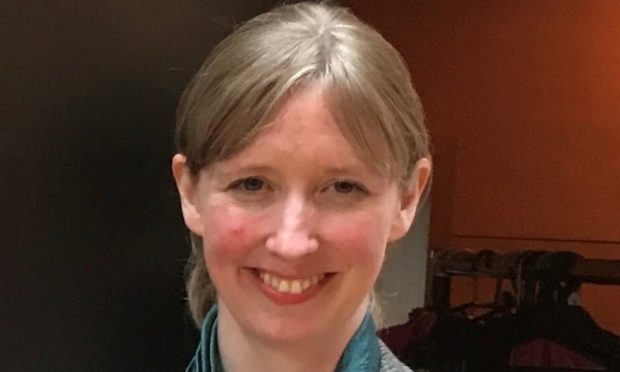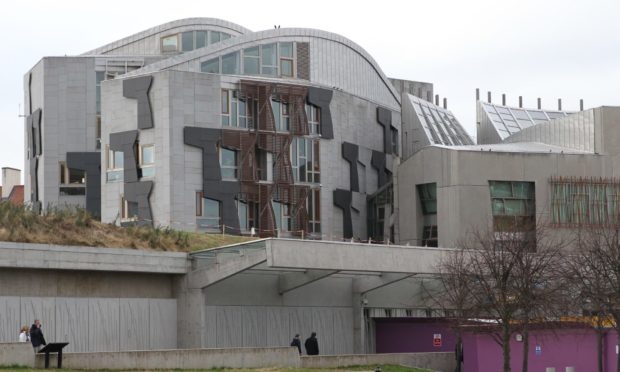Amnesty International is calling on the Scottish Government to hold a public inquiry into the impact the coronavirus pandemic and lockdown has had on people’s human rights.
The charity has written to First Minister Nicola Sturgeon, and says Scotland’s recovery from the pandemic needs to have vulnerable people’s human rights at the forefront.
Public bodies “failed to consider basic human rights”
Naomi McAuliffe, Scotland programme director at Amnesty International, says there may have been numerous human rights violations during the pandemic, and says some such as frontline workers and care home residents may have been more likely to have seen these breaches.
She said: “A number of public bodies failed to consider basic human rights when making decisions about people’s lives, whether it’s the procurement of PPE for frontline workers, the removal of care packages, or school closures.
A number of public bodies failed to consider basic human rights when making decisions about people’s lives.
“The BAME community is more likely to die from Covid, and some people are in jobs where they are more likely to catch it, like healthcare workers or transport workers.
“The lockdown is also more likely to have impacted on women who have had to become unpaid carers, and schools closing meant the majority of home schooling, and the impact that had on employment, was done by women.”
Ms McAuliffe adds some of the decisions regarding children, such as restricting who they can and cannot interact with during lockdown, will have a last impact on people’s mental health for a long time to come.
Call for the Scottish Government to hold a public inquiry
Amnesty International is now calling on the Scottish Government to urgently hold a public inquiry into these matters, and to make sure they learn lessons when making decisions in the future.
Ms McAuliffe said: “We want a public inquiry for immediate action and to make sure we are learning.
“We have sent a letter to the first minister spelling out how that should happen and urging for it to happen as soon as possible.
“It could have happened six months ago, so the next best time to start is tomorrow.
“We are worried it will be kicked into the long grass by the Scottish and UK governments – Boris Johnson has promised an inquiry by spring 2022, but people are already feeling the impact of this.
As the Scottish Parliament continues a series of debates around Covid-19 this afternoon, read our briefing to MSPs on why human rights must be at the heart of Scotland’s recovery.
Briefing – https://t.co/uafhGY1n3i pic.twitter.com/EoR5zx3631— Amnesty Scotland 🕯 (@AmnestyScotland) June 2, 2021
“There are some things we can look at immediately, like care homes.
“Decisions around care homes are already being investigated by the Crown Office, so that is something that can be started as soon as possible.”
Amnesty adds a potential public inquiry needs to be people-centred and needs to be done in an accessible way for all, including family members of those who have died from Covid, children, and those with disabilities.
“There may be more pandemics on the horizon”
Ms McAuliffe said it is important the Scottish Government learns lessons from the first 15 months of the pandemic for future decisions they will make.
She added: “We are lifting a lot of restrictions and it feels like we are getting past this phase of the pandemic.
“But there may be more pandemics on the horizon.
“In the last two decades we have seen SARS, swine flu and bird flu.
“It is not unpredictable there will be something equivalent to coronavirus in the future.
“And the more public authorities understand about the human rights impacts of their decisions, the better outcomes in normal times, not just crisis times.
Ms McAuliffe adds many public authorities have not yet learned the lessons they needed to in the pandemic.
She said: “Few public authorities had any processes around human rights and very few did impact assessments or inequality assessments during the pandemic.
We are now 15 months on and we should have learned lessons along the way.
“We understand at the beginning it was an emergency and a lot had to change quickly, but we are now 15 months on and we should have learned lessons along the way.
“But still decisions are being made without scrutiny or without enough lead-in time for a proper assessment to be made.”
Letter passed to the Lord Advocate
Following Amnesty’s letter to the Scottish Government, Ms McAuliffe says there have been some positive signs, however says she wants to see the government committing to a firm timeline of events.
She said: “Our letter has been acknowledged and passed onto the lord advocate, who would be in charge of setting up an inquiry.
“But there is no concrete timeline for this.
“The SNP said in their first 100 days there would be a people-centred public inquiry, which is positive but again not concrete.
“We are keen to progress this through parliament as we are worried there will be feet dragging on this for as long as possible.”
Scottish Government waiting for UK public inquiry remit
The Scottish Government said it is waiting to see if the UK-wide public inquiry covers these human rights issues highlighted by Amnesty before making a decision on whether to hold a specific one in Scotland.
A spokesman said: “Following the UK Government’s decision to follow us in committing to take forward a four nations full public inquiry, detailed work will be done on the terms of reference and the timescale.
“Scottish Government officials are engaging urgently with their UK Government counterparts on its plans.
“When we have a greater sense of that remit, we will make a judgement as to whether the UK-wide inquiry covers all of the issues that need to be covered for Scotland or whether there is a need to have a part of the process that looks at other issues.
“We are also clear that we expect it to begin its work by the end of this year.
“If the UK Government does not take this forward swiftly, we will determine if a distinct Scottish inquiry is required to meet the needs of families who have been impacted by the pandemic.”



